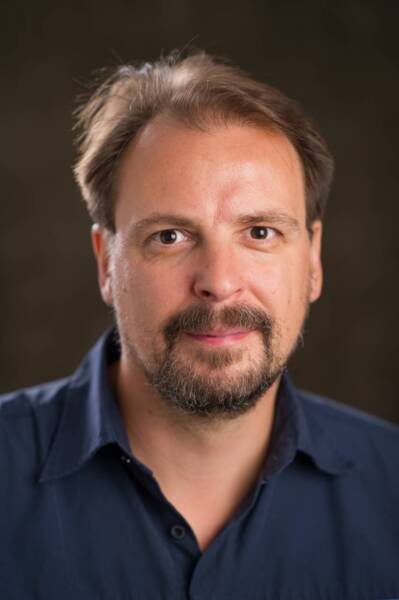Mechanisms for life and death are related
Bertrand Joseph, Professor of Molecular Cancer Biology specialising in Cell Death at the Institute of Environmental Medicine, researches signals at cellular level that determine if cells are to die or not. His work is relevant for many diseases, such as neurodegenerative diseases and cancer, in which cells take the wrong decision in this choice between life and death.

Our bodies have systems for repairing damaged cells so that they survive, and systems for letting cells die. If these mechanisms dysfunction, disease ensues. Professor Joseph’s work involves looking into what happens at a molecular level when cells decide between life and death.
“Our research concerns different kinds of cell, including the microglial cells in the brain,” says Professor Joseph. “These cells are very flexible in their function and can both attack unwanted cells and maintain healthy cells."
"What we’re trying to do is understand why they sometimes make the wrong decision, such as when microglia actively help a cancer tumour to grow; or vice versa, when they attack healthy cells and cause neurodegenerative diseases such as Parkinson’s or Alzheimer’s."
Quite related
The more that is learned about these systems, he explains, the clearer it becomes that the mechanisms for survival and death are actually quite related.
“Previous, scientists have often taken the presence of certain proteins to mean that they performed some kind of function,” he says. “Now we see that enzymes linked to apoptosis are also involved in the survival signalling. It’s not the protein that matters, it’s the context.”
Another process associated with cell survival and death is autophagia, which is an important cellular digestion mechanism that allows cells to get rid themselves of defective organelles while recovering energy and building blocks. Autophagia can also lead to cell death, however. Professor Joseph and his colleagues have discovered that the nucleus plays a hitherto unknown and key part in autophagia.
Text: Anders Nilsson, first published in "From Cell to Society" 2015 (translation: Neil Betteridge). Department affilation uppdated in May 2021.
